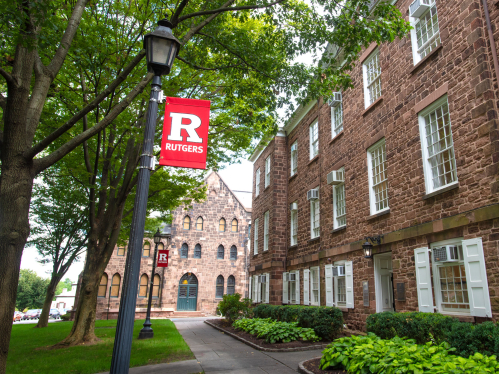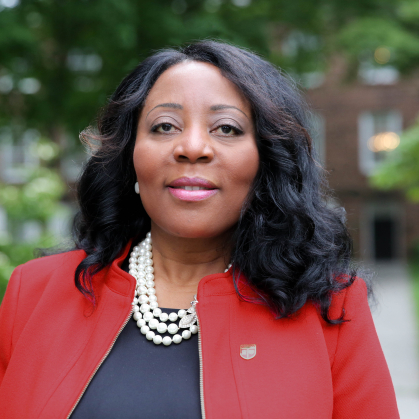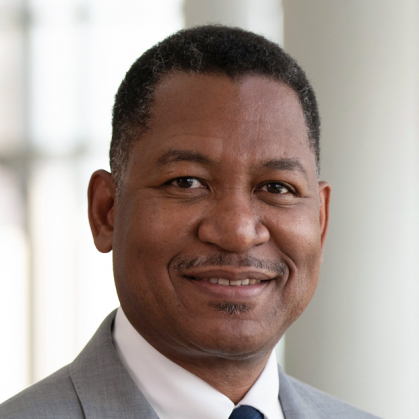Dr. Tonya Smith-Jackson, PhD, CPE, is chancellor of Rutgers University–Newark. She is an industrial and systems engineer with extensive academic leadership experience. Formerly Provost at North Carolina A&T State University, she has also served at the National Science Foundation. A Fellow of IISE and HFES, she champions academic excellence, equity, diversity, and inclusion across higher education and industry.
Governance and Leadership
Rutgers’ distinctive history as a colonial college, a land-grant institution, and the state university helped shape its current governance structure.
Governing Boards
Rutgers University is overseen by the Board of Governors and the Board of Trustees. The Board of Governors, created by state law in 1956, is the chief governing body of the university. The Board of Trustees, a governing body since the university’s founding in 1766, acts in an advisory capacity to the Board of Governors and has certain fiduciary responsibilities.
President William F. Tate IV
William F. Tate IV, the 22nd president of Rutgers, The State University of New Jersey, is a renowned social scientist and a member of the American Academy of Arts and Sciences and the National Academy of Education. He began his presidency on July 1, 2025. He previously served as president of Louisiana State University and held faculty and leadership roles at the University of South Carolina, Washington University in St. Louis, and the University of Wisconsin-Madison.
The university president is the chief executive officer of the Association of American Universities (AAU) unit of Rutgers—comprised of Rutgers University–New Brunswick and Rutgers Biomedical and Health Sciences (RBHS)—with the chancellors of Rutgers–New Brunswick and RBHS serving as the two chief operations officers of the AAU unit. The chancellors of Rutgers University–Newark and Rutgers University–Camden are the chief executive officers of their respective areas.
The president appoints an administrative council comprised of academic deans, chancellors, vice presidents, and other senior administrators who aid in guiding and implementing university priorities and initiatives.
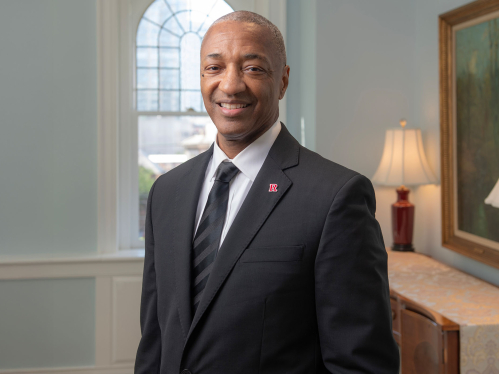
Meet the Chancellors
The four Rutgers chancellors report to the university president and implement strategic plans for each of their divisions.
Brian L. Strom is the inaugural chancellor of Rutgers Biomedical and Health Sciences. He is widely recognized as a founder of the field of pharmacoepidemiology—the study of the uses and effects of drugs among large groups of people.
Francine Conway is chancellor of Rutgers University–New Brunswick. Conway, an internationally recognized child psychologist, was previously provost of Rutgers–New Brunswick and dean of the Graduate School of Applied and Professional Psychology.
Antonio D. Tillis is chancellor of Rutgers University–Camden. Prior to becoming chancellor in July 2021, Tillis was interim president of the University of Houston–Downtown. Also at the University of Houston, he served as dean of the College of Liberal Arts and Social Sciences, the largest of the 15 academic and professional colleges at the university.
Faculty’s Role in Governance
Rutgers faculty and other members of the university play a major role in guiding university policy and procedures through shared governance with the administration.
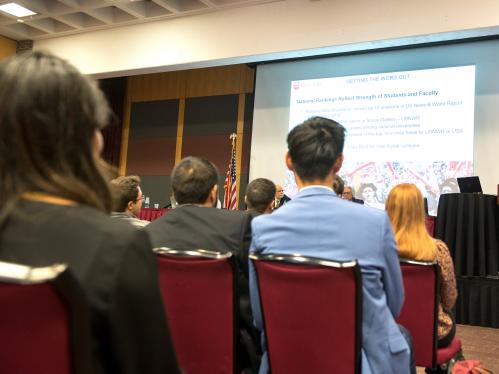
Leadership and Policy Information
